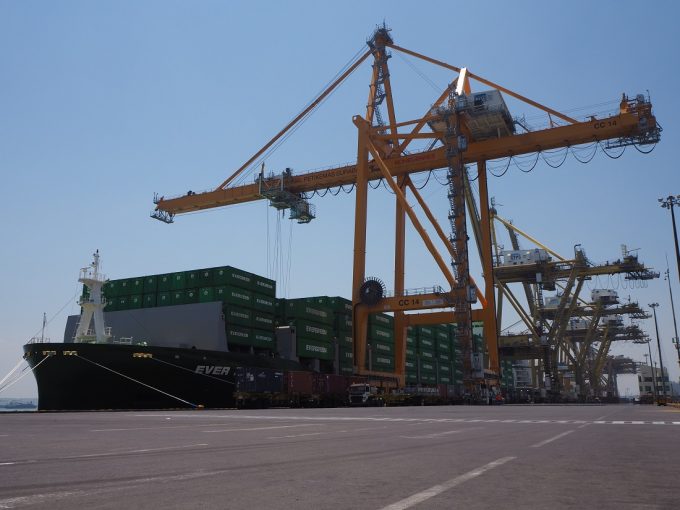Bulgaria service kicks-off new Unimed expansion phase
Next week, eastern Mediterranean and Black Sea feeder operator Unimed Feeder Services will launch a ...

Indonesia’s port development was dealt a blow last week when DP World announced it would not renew its only operating contract there beyond 2019.
Located on the northern shore of East Java, the 2.1m teu-capacity PT Terminal Petikemas Surabaya (TPS) is 49% owned by DP World, with the majority stake controlled by state-owned port company Pelindo III.
In a rare rebuke to the Indonesian authorities, the Dubai-based port operator said the terms offered to renew the concession were financially unacceptable.
A local source told The ...
Trump tariffs see hundreds of cancelled container bookings a day from Asia
'Disastrous' DSV-Schenker merger would 'disrupt European haulage market'
'To ship or not to ship', the question for US importers amid tariff uncertainty
'Chaos after chaos' coming from de minimis changes and more tariffs
List of blanked transpac sailings grows as trade war heats up and demand cools
EC approves DSV takeover of DB Schenker
Shippers in Asia restart ocean shipment bookings – but not from China
Forto 'sharpens commercial priorities' as it lays off one-third of staff
India withdraws access for Bangladesh transhipments, in 'very harmful' decision
'Tariff hell' leaves industries in limbo – 'not a great environment to plan'
IndiGo fleet expansion plan will include a major push to boost cargo volumes
Pre-tariff rush of goods from US to China sees air rates soar, but not for long
De minimis-induced ecommerce demand slump could cripple freighter operators
'Restoring America's maritime dominance' – stop laughing at the back of the class
Hapag 'took the bigger risk' when it signed up to Gemini, says Maersk
Navigating tariffs: 'like trying to solve a Rubik's cube while colour-blind'

Comment on this article